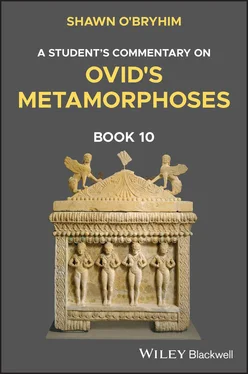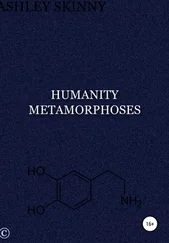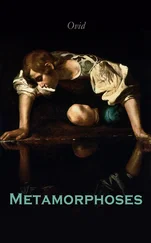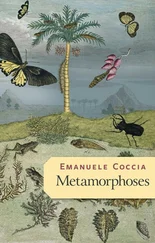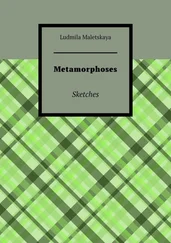I owe a debt of gratitude to many people. I would like to thank Professor Athanassios Vergados of Newcastle University, who has provided support in many ways over the years, most importantly by being a good friend. My wife, Angela, generously gave me the time that I needed to focus on the final stages of this book, while James Lipka, my long-suffering guitar teacher, offered me a much needed distraction from it. Todd Green, Will Croft, Skyler van Valkenburgh, and Andrew Minton, the editorial team at Wiley, made the production of this book virtually painless, as did my copy-editor, Manuela Tecusan, and Surendar Adhavan, who oversaw the production process. Any infelicities in the text are due to my inveterate stubbornness. Franklin & Marshall College provided sabbatical funds that allowed me to spend a year in the excellent library of Ruprecht Karl University in Heidelberg.
If nothing else, I hope to have left behind something to remind my children, Caelan Alexander Patrick O’Bryhim, Brendan Augustus Conchobhor O’Bryhim, Aidan Constantine Conlan O’Bryhim, and Collin Arthur Declan O’Bryhim, that their father was not, in Milton’s words, a burden to the earth.
Shawn O’BryhimArcadia, Indiana
Of Ovid’s many works, Book 10 of the Metamorphoses has had perhaps the greatest impact on western culture. Its tales of Orpheus and Eurydice, Pygmalion and his statue, and Venus and Adonis have inspired artists, poets, writers, and composers from the Middle Ages to the modern era. Because most commentaries on Ovid’s Metamorphoses survey large portions of the epic, the attention that they are able devote to individual books is limited. Bömer’s German commentary is a scholarly resource that provides a wealth of information on the individual myths that constitute Book 10, but offers little analysis of their significance to the book as a whole. Although the German commentary on the Metamorphoses by Haupt, Korn, Ewaldt, and von Albrecht is better for literary analysis, the space devoted to Book 10 is limited by the commentary’s broad scope. The same can be said of Bosselaar’s Metamorphoseon in Dutch and Galasso’s Le metamorfosi in Italian. Although Anderson’s commentary on Books 6–10 is very good, it rarely ventures beyond literary analysis, as does Hill’s short commentary on Books 9–12, which is intended for students of literature. Reed’s Ovidio: Metamorfosi , vol. 5, a volume devoted to Books 10–13, is excellent, but it is in Italian and is far too advanced for undergraduates. Fratantuono’s stand-alone commentary on Book 10 offers some observations on Orphism, but otherwise is purely literary. This book deals not only with the literary, grammatical, and textual matters that are integral parts of any commentary on a classical text but also examines the religious, archaeological, and cultural background of the myths. For Book 10, this background is not only Greek and Roman but also Near Eastern. It is my hope that this multidisciplinary approach will facilitate a more holistic understanding of Book 10, especially at a time when a broader conception of classics is coming to the fore – a conception that encompasses the contribution of the Near East to the Greek and Roman world.
This commentary is intended primarily for undergraduate students of Latin who have completed at least two years of language instruction. It may also be of use to graduate students, and perhaps even to researchers who are unfamiliar with some of the nonliterary elements of Book 10. Its focus, however, is on its primary audience. Since these students will have already mastered the basics of Latin grammar, only its more uncommon aspects receive comment here. While literary interpretations of some of the myths of Book 10 abound, several are not mentioned in this commentary for a variety of reasons, but they can be introduced during class to promote discussion, if the instructor so chooses. The text follows that of Tarrant and Anderson, with the substitution of some readings from other editors and from the manuscripts.
Introduction
i. Ovid’s Biography
Most of what we know about the Roman poet Publius Ovidius Naso comes from Tristia , a collection of autobiographical poems that he wrote after Augustus relegated him to the Black Sea. Because this information cannot be confirmed by independent sources, it must be used with caution, particularly when it comes to Ovid’s complaints about his place of exile.
At Tristia 4.10, Ovid says that he was born into a respectable equestrian family of moderate means on March 20, 43 BC, in Sulmo (modern Sulmona), a small city about 100 miles to the east of Rome. Ovid’s brother, who was born in the previous year, shared his birthday. Both were educated by the best local teachers. While Ovid’s brother favored oratory, Ovid himself gravitated toward poetry. When his father attempted to dissuade him from focusing on verse because he thought that there was no money in it, Ovid tried to please him by writing prose. This ultimately failed: as the rhetorician Seneca the Elder ( Controversiae 2.2.8) put it, he simply wrote verse in prose. When his brother died at the age of 20, Ovid embarked upon a political career. He was first elected to the board of the tresviri capitales (three officials who oversaw policing), and later to that of the decemviri stlitibus iudicandis (ten officials who judged lawsuits) ( Fasti 4.383–384). The next logical step was a major political office. Politics, however, did not interest Ovid. Instead of continuing on this course, he returned to his first love: poetry.
Ovid went to Rome and began giving public recitations of his love poetry, much of which centered on his (possibly fictional) lover, “Corinna.” His talent made him popular in literary circles and provided access to the most famous poets of the time: Macer, Propertius, Ponticus, Bassus, and Horace. After two divorces, he married a woman who gave him a daughter and stood by him even after Augustus relegated him in AD 7 to Tomis, a settlement on the west shore of the Black Sea (modern Constanţa, Romania). This punishment was particularly irksome to Ovid, as the locals did not know Latin and therefore were unable to appreciate his talent.
Ovid maintains that he was not expelled from Rome because of a crime ( Tristia 4.10.90), but because of “a poem and a mistake” ( carmen et error, Tristia 2.207). He provides few specifics, since – he claims – the details are well known. Nevertheless, he does identify the poem as Ars amatoria , a didactic work on seduction ( Tristia 2.8; 3.1–8; Ex Ponto 2.9.76). The dissemination of this poem is a classic example of bad timing, coming as it did on the heels of Augustus’ moral legislation and the exile of his daughter, Julia, on the charge of adultery. While Ovid is open about the incriminating poem, he does not reveal the nature of his error, claiming that he does not want to reopen the wound that he inflicted upon Augustus. Nevertheless, he repeatedly avers that his offense was no crime ( Tristia 2.208–210, 4.4.37–42, 5.4.18–22; cf. Ex Ponto 2.3); it was not rebellion ( Tristia 2.51–56), murder, fraud, or the breaking of any law ( Ex Ponto 2.9.63–75). Rather it was something that he witnessed ( Tristia 2.103–104). Whatever this was, his failure to report it offended Augustus, who banished Ovid on his own authority instead of sending his case to the Senate or to a court ( Tristia 2.131–138). It may be that he was privy to something embarrassing and that the emperor, not wanting to make this matter public, used the Ars amatoria as a pretext for Ovid’s exile. Although he defends himself at length against the charge of teaching adultery through the Ars ( Tristia 2.211–212, 2.237–572), he steadfastly refuses to reveal the reason for his exile, perhaps because he hoped to obtain a pardon or, at the very least, a transfer to a more genial location.
Читать дальше
